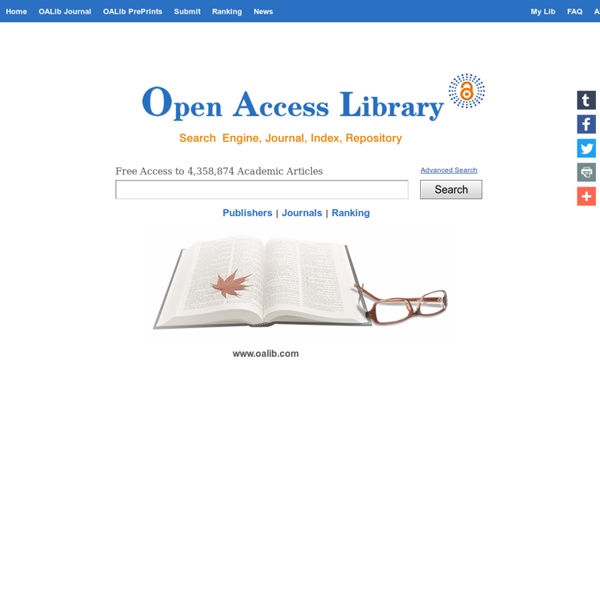



Educational Technology and Mobile Learning: 12 Fabulous Academic Search Engines Coming to you from the wonderful Nova Scotian city, Halifax (Canada), Educational Technology and Mobile Learning is an educational blog dedicated to curating, reviewing and sharing EdTech tools and mobile apps. The purpose is to help teachers and educators effectively integrate digital technologies into their day-to-day teaching, learning and professional development. For any questions regarding the blog website or the published content , please contact EdTech admin, editor and blog owner, Med Kharbach at: info@educatorstechnology.com. Med Kharbach is a doctoral researcher and a former teacher with 10 years of classroom teaching experience. Med's research interests include: discourse analysis, language learning, linguistics, Internet linguistics, critical linguistics, new (emerging) literacies, critical pedagogy, and educational technology. Here is how to cite any of our blog posts in APA style :
6 of The Best Web Tools for Organizing and Managing Citations, References and Bibliographies April 1, 2015 One of the onerous parts in essay and academic writing is the bibliography section. Managing, organizing and citing references can sometimes be a real challenge especially if you don't keep track of what and who you cite. The last thing you would want after a strenuous writing task is a messy bibliography with one reference missing page numbers the other needs publication date or, worse of all, having to go back to your sources to check for the source of that quotation you included in your conclusion.
SEO Keyword Graph Visualization Use this free Java application to explore the connections between related websites. Try it now! Enter keywords or a URL, and click 'Graph it!' See Getting Started below for more details. 100 Time-Saving Search Engines for Serious Scholars (Revised) Back in 2010, we shared with you 100 awesome search engines and research resources in our post: 100 Time-Saving Search Engines for Serious Scholars. It’s been an incredible resource, but now, it’s time for an update. Some services have moved on, others have been created, and we’ve found some new discoveries, too. Many of our original 100 are still going strong, but we’ve updated where necessary and added some of our new favorites, too.
How Google Docs' research tool removes drudgery from reports and presentations You’re frantically racing toward a deadline to complete a multi-page report or slideshow presentation, but research is slowing you down. Not tracking down the information so much as the constant bouncing between your work document and web browser, and cycling through the confusing morass of open tabs to find that webpage or image you need. If you use Google’s free office suite, there’s an easier way—a built in research tool that lets you search for the information you need and easily add it to the Google Doc or Google Slide you’re working on without having to leave the page. Here’s how to get started.
10 Amazing Uses for Wolfram Alpha You may have heard of Wolfram Alpha, which is a “computational knowledge engine.” That makes it sound a bit scary, but it’s a great tool once you can wrap your head around it. Apple’s Siri uses Wolfram Alpha for 25% of its searches.
5 Terrific Twitter Research Tools Twitter has a wealth of data - it's a global thought-stream on every topic imaginable. But how do we convert that raw data into insights, trends and actionable information? How can we find the signal in all that noise? Fortunately, there are several tools out there that can help analyze Twitter data, understand user behavior, and graph it for analysis and presenting to others.
Research Strategies - AAA Shared Resource Guide - LibGuides at Indiana University-Purdue University Indianapolis Before you start entering any search terms, spend a few minutes trying to think of as many relevant terms and combinations of terms as you can. This will help you to avoid getting stuck in a rut with the first terms that come to mind. If you need help in coming up with terms, you may want to try the "Thesaurus" or "Subject Headings" features in the database you've chosen. Check out the "Help" or "Search Tips" to learn some of the search features specific to that database.
100 Time-Saving Search Engines for Serious Scholars While burying yourself in the stacks at the library is one way to get some serious research done, with today’s technology you can do quite a bit of useful searching before you ever set foot inside a library. Undergraduates and grad students alike will appreciate the usefulness of these search engines that allow them to find books, journal articles and even primary source material for whatever kind of research they’re working on and that return only serious, academic results so time isn’t wasted on unprofessional resources. Note: Visit our updated list for the latest in academic search engines. General
A Guide to Top Academic Search Engines and Databases for Scholars Academic search engines play a very important role in discovering academic resources, scholarly works, journal articles, etc. Below is a guide/ survey of some of the outstanding, free academic search engines. A few of them are inclusive of academic repositories and databases as well. How to Read a Journal Article Journal articles can be challenging to read, but most contain many of the same components. Once you understand the structure of each article, understanding the content is much simpler. Journal articles normally contain the following parts.